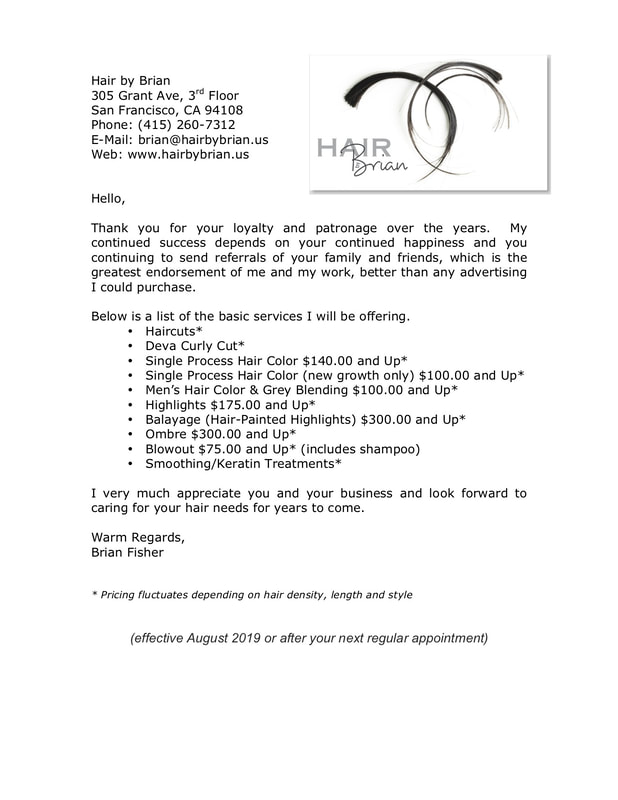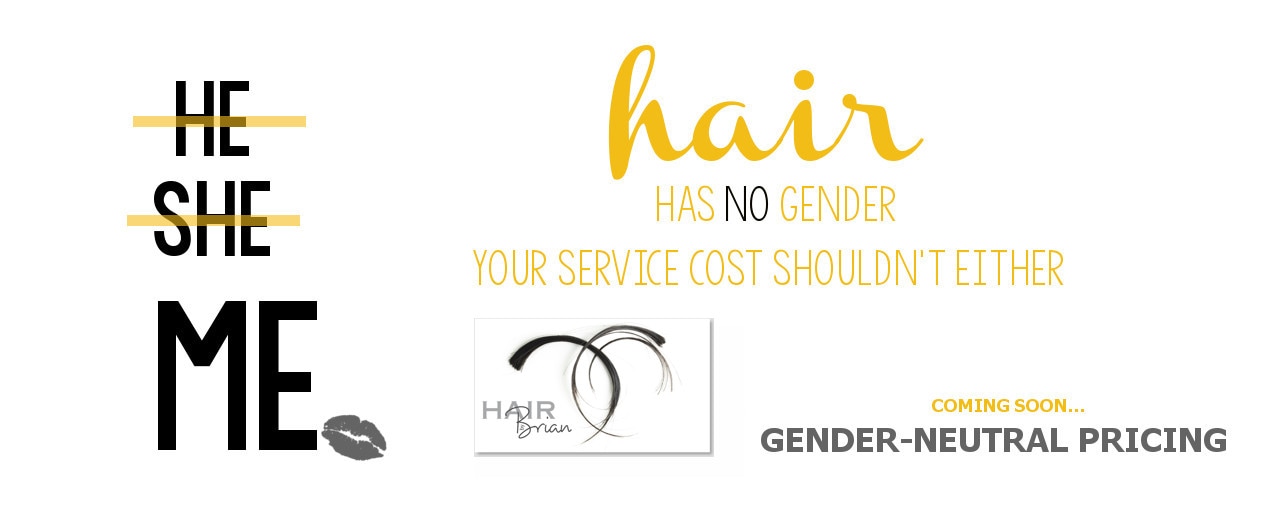|
Going to the salon used to be a fun Saturday excursion, but social media is now revealing that the good can come with a bad or even ugly experience. Caring for our natural crown can be liberating and a full-time job. We’ve all been there when our twist-outs, wash-and-go’s, and slick back buns just aren’t hitting like they used to. For some, hitting up their hairstylist is the equivalent of hitting up a friend to catch up; for others, seeking a new stylist requires a deep dive into social media. These days, social media has become the medium for women of color to get an inside look at what a hairstylist's experience is sometimes like including expensive deposits, outrageous rules, and overall bad experiences. In return, unsatisfied clients are not shy about exposing the root of their tragic hair appointment. The popularity of sharing salon experiences has taken social media by storm, especially on TikTok - a Google executive admitted that their studies showed 40% of young people took to TikTok or Instagram for discovery purposes. We recently talked to TikTokers Domenica and Fellisia, who both felt that the trending social media topic had been a positive experience for consumers. Domenica says, “I think it’s more real than written reviews sometimes. You know it’s a real person actually saying it; people see the results, and sometimes even the process.” The level of honesty about stylist experiences can be refreshing for consumers. Felicia adds, “There is a whole new level of transparency regarding the entire experience. You learn so much more about not only the service, but you can get a holistic understanding of the experience, which includes all facets of customer service.” However, how much transparency is too much transparency? For some, one bad social media post from an unsatisfied client can destroy a once thriving Black-owned business. The U.S. Census data shows 58% of Black owners described their businesses as “at risk” or in “distress.” At some point, we must think if the post is worth the potential damage it can have on a Black or Brown business owner. There has been a wide conversation about Black business owners knowing their worth and value. These conversations have empowered Black business owners of all kinds, especially hairstylists, to “charge up,” for example. While this can be a liberating and life-changing experience for Black hairstylists, it can also be a very limiting experience for the communities that supported them. There’s an abundance of social media posts referring to the outrageous prices of Black hair stylists. In this Twitter thread, one user explained how one hairstylist charges $500 for a silk press. As much as it pains us to lose our favorite hairstylist due to hefty pricing, stylists ultimately have the freedom to charge what they are worth. However, they must also recognize that clients have the freedom to be clients without any outrageous restrictions. According to hairstylist Karen Miller, charging your worth always comes at a price. “There’s nothing wrong with charging your worth. You just have to hold yourself to the same standard or better that you’re charging. Always stay on your A game.” When it comes to unsatisfied clients sharing their thoughts on social media, Karen isn’t trying to fight the social media reviews; she’s learned to embrace them. “That’s just the times we are in. There’s no way to protect yourself from bad clients. While I understand you can’t please everyone, this is also a way to hold stylists accountable on every level.” Criticism, especially social media criticism, can intimidate any business owner. Although there is no way to avoid other people’s opinions in 2023, stylists can still take back their power by learning from it. Karen adds, “I believe we have true power over our businesses. Social media can either help you or hinder you, but ultimately it is the work you’re putting out there. I think people are just looking for an overall good experience.” from Bet.com
Ever wondered why your hair turns gray as you age? A team of researchers says it has identified the root cause as trapped stem cells — and that means new tips for naturally fending off grays from your mane could be coming soon. It all starts with a type of stem cell called melanocytes, also known as McSCs, says the study, which was published in the journal Nature this week. The research team from NYU Grossman School of Medicine was already familiar with melanocytes. They're the main mechanism that produces the pigment melanin, bringing color to your skin and eyes. That melanin is key to hair color. McSCs hang around in your hair follicles, where they receive a protein signal that tells them when to become mature cells. Mature cells release pigment and, voilà, you get your hair color. But over the course of this study, the researchers learned that McSCs actually move between microscopic compartments in your hair follicle. Each compartment might give the MsSC a slightly different protein signal, which allows the cell to oscillate between different levels of maturity. That's largely unlike how other stem cells operate — that is, maturing until they die. The unique maturity level of MsSCs gets more complicated the older you get. As your hair grows and sheds in cycles, the more McSCs get stuck in one particular compartment called the hair follicle bulge. The follicle bulge isn't giving those McSCs the signal to mature, and it's not sending the McSCs back to a compartment that would. The jammed cells allow the hair to keep growing, but the hair isn't given its dose of pigmentation. As a result, you go gray. To prove this concept, the research team produced salt-and-pepper-colored mice by physically plucking strands of their hair again and again over the course of two years. They found the number of McSCs lodged in the follicle bulge increased from 15 percent to nearly 50 percent. But in the younger hairs, which weren't plucked, the McSCs continued to move around the different compartments, picking up protein signals and producing a consistently rich brown pigment. To be clear, the McSCs aren't the sole factor in determining when your gray grows in. Dr. Jenna Lester, a dermatologist and professor at the University of California, San Francisco, told NPR's Short Wave podcast that there's a multitude of factors beyond aging that play a role. "Some people think sun exposure can damage their melanocytes more or less," she said. "And hormones also play into it as well." Then there's stress, genetics and certain medical conditions, which can all strip hair of its richer hues. Overall, 74% of people between the ages of 45 and 65 years of age have at least a few silver strands, according to research from the National Institutes of Health. If you're in that camp and resenting it, this new study could be a reason to rejoice: The researchers say that moving the McSCs to their proper location could prevent graying. And anyone scoffing at the vanity of stressing over silver strands can also rejoice: The researchers also say studies like this are putting us one step closer to curing cancer. (Seriously.) "We are interested in how stem cells residing in our body are regulated to properly maintain our body and how they can reform the tissues when they are lost by injuries," said Mayumi Ito, a professor at NYU Langone Health and a senior investigator on the study. "When the stem cell regulation goes awry, we will have multiple health problems including cancers," she told NPR. "The melanocyte stem cell system is advantageous to understand this broad issue in medical science, as the malfunction of the system is so visible." from NPR
What’s the difference between men and women’s hair?
Why must a guy pay any different to that of a woman? It’s an age old question. And what really is the difference? Realistically, other than the obvious - nothing. For this reason I’ve decided to stop the gender focused pricing that every hairdresser undertakes. It’s the same service. It’s the same product. It’s the same time. It has been custom for most hair salons to charge more or less for a service based on a client's gender, rather than the length of their hair. I believe that introducing gender-neutral pricing will help promote a fairness and equality for everyone. Beginning July 1st, pricing will be based on the length of hair at the start of an appointment. I’ve been thinking about this for some time and it is extremely important to me as hair, and similarly gender, are very fluid. By removing the need to identify where an individual falls on the gender spectrum, if at all, I hope to foster an environment where individuals feel comfortable collaborating with me to get the look and style they want to express. I believe in equality and would like my prices to be focused on the service received, not the gender of the person receiving the service. - Brian Hair by Brian |
Hair by BrianMy name is Brian and I help people confidently take on the world. CategoriesAll Advice Announcement Awards Balayage Barbering Beach Waves Beauty News Book Now Brazilian Treatment Clients Cool Facts COVID 19 Health COVID 19 Update Curlies EGift Card Films Follically Challenged Gossip Grooming Hair Care Haircolor Haircut Hair Facts Hair History Hair Loss Hair Styling Hair Tips Hair Tools Health Health And Safety Healthy Hair Highlights Holidays Humor Mens Hair Men's Long Hair Newsletter Ombre Policies Procedures Press Release Previous Blog Privacy Policy Product Knowledge Product Reviews Promotions Read Your Labels Recommendations Reviews Scalp Health Science Services Smoothing Treatments Social Media Summer Hair Tips Textured Hair Thinning Hair Travel Tips Trending Wellness Womens Hair Archives
June 2025
|
|
Hey...
Your Mom Called! Book today! |
Sunday: 11am-5pm
Monday: 11am-6pm Tuesday: 10am - 6pm Wednesday: 10am - 6pm Thursday: By Appointment Friday: By Appointment Saturday: By Appointment |









 RSS Feed
RSS Feed